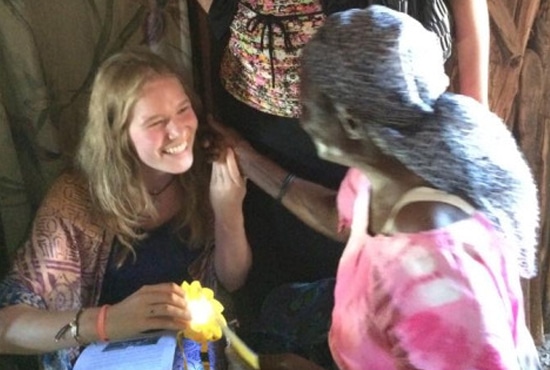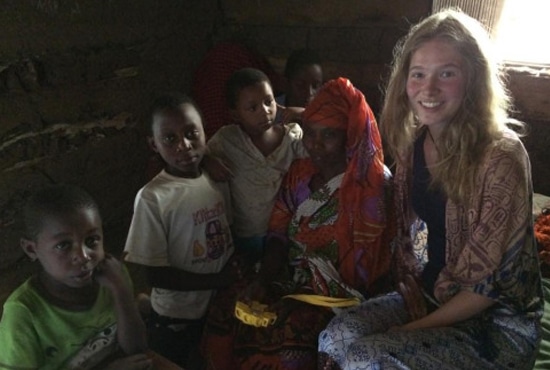
Moshi, a town at the base of Mount Kilimanjaro in Tanzania, is a popular pit stop for many passers-by hiking to the summit. Despite being the capital of the Kilimanjaro region, HIV prevalence remains high and many families live without consistent, safe electricity.
mondo*arc Editorial Assistant Femke Gow had the opportunity to visit four families of children who attend the TAFCOM Children’s Center. The families she visited used kerosene oil lanterns. Although kerosene lanterns are a common option for many families off-grid, direct exposure to its emissions can be harmful. Femke shares their respective stories:

The three children, Adam, Sunira and Hemedi are taken care of by their grandmother. Their mother died and their father has HIV, as do all the children. Their grandmother very much wants these children to have an education. One of the children currently goes to school but they cannot afford to send them all. They currently use kerosene and can’t study at home because the lamp doesn’t give off enough light. The Little Sun lamp will help at home because the one who goes to school will be now able to study at home, and it will be easier to keep the home clean and secure, plus they can save money as well.

Fortuna Pita is the grandmother to three children. Two go to school, in secondary and primary school, and the third suffers form a heart condition which causes her to faint so she can no longer attend school. They currently use kerosene to provide a small amount of light in their room, and have no access to electricity (this is not even a matter of money, there is simply no electricity in the area). With Little Sun lamps, the kids can now study at home when it gets dark. They will save money from not having to buy kerosene and will be able to go outside to the toilet safely at night.

Pili is a mother of two: one four-year-old daughter in school at TAFCOM and another seven-month-old daughter. Her husband passed away and she has HIV. Her one wish for her daughters is for them to be educated. She currently cannot afford the rent of their room; the Little Sun will enable her to save money so they can stay in their room, and she will now be able to see at night when changing her baby’s nappies.

The families expressed how Little Sun light would affect their daily lives, particularly for the children attending school who can now do their homework at home in the evening. In addition, they will be able to maintain a higher standard of cleanliness and sanitation in their homes with increased visibility, and save money by not buying kerosene. One mother even pointed out that she would now be able to see when changing her baby at night.

Heartfelt thanks to Femke, mondo*arc team, and TAFCOM for sharing clean, safe light to children and their families in Moshi.

